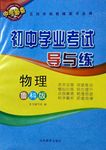题目内容
【题目】他与外界隔绝了,唯一的信息渠道是电话。
He is ______ ______ ______ the outside world and his only channel of information is the telephone.
【答案】见解析
【解析】cut off from

练习册系列答案
 七星图书口算速算天天练系列答案
七星图书口算速算天天练系列答案 初中学业考试导与练系列答案
初中学业考试导与练系列答案
相关题目
题目内容
【题目】他与外界隔绝了,唯一的信息渠道是电话。
He is ______ ______ ______ the outside world and his only channel of information is the telephone.
【答案】见解析
【解析】cut off from

 七星图书口算速算天天练系列答案
七星图书口算速算天天练系列答案 初中学业考试导与练系列答案
初中学业考试导与练系列答案